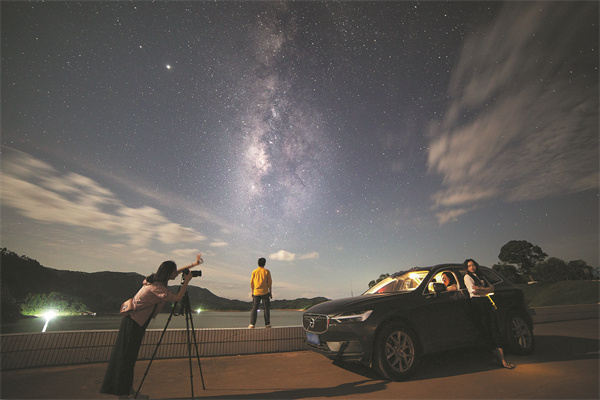

"It's easier to see stars in Australia since it's not hard to find a dark area there," he said. "Sometimes, I didn't even use the telescope, I would just look at the shining stars with the naked eye."
After Wang returned to China in 2020, he soon discovered that stargazing had become a popular trend among the country's youngsters.
He organized four stargazing activities by just sending a message in WeChat group. Each one attracted more than 40 people, double the number it used to be.
"I found a place with good observation conditions in Chaoyang Park, where, as well as staring at the stars, people can also camp and picnic," he said. "During our events, some people listen and dance to music, some eat, some observe the night sky and the Milky Way and others chat.
"It's more like a social event rather than a formal meeting of stargazing enthusiasts digging into the mysteries of the cosmos. I like that kind of atmosphere. It is very relaxing," Wang said. "My academic major was artificial intelligence, which is not related to my hobby at all. All of my interest in the stars and space came from my childhood when my father, who was a physics teacher, taught me how to identify the different constellations.
"It's a very good trend that an increasing number of people are looking up to the sky, no matter whether they have the related knowledge or not," he said with a happy tone, noting that everyone should enjoy the beauty of nature.
"There is huge, almost spiritual, satisfaction in the experience," Wang explained. "There's no doubt that you can see much clearer pictures of the planets on internet or in books, but the feeling is totally different when you view them directly."